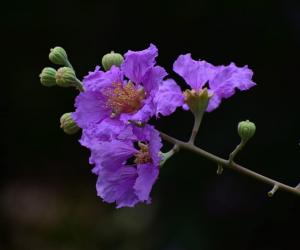Discover the 10 Healthiest Countries in Africa
Exploring health and well-being across the African continent, we turn our attention to nations that prioritize the health of their citizens. The Bloomberg Global Health Index provides valuable insights into healthcare systems, lifestyle choices, and overall well-being. Join us as we delve into the top 10 healthiest African countries, each with its own approach to fostering health and wellness. While these nations did not rank high in the global list, which is headed by Italy, Singapore and Iceland, their approaches toward the health of their citizens is still superior as compared to other nations on the continent.
1. Seychelles

©fokke baarssen/Shutterstock.com
Seychelles, a tropical paradise in the Indian Ocean, tops the list for its robust healthcare system and emphasis on health. With universal healthcare coverage, the 115-island archipelago’s citizens have access to quality medical services. The nation’s commitment to preventive care and a balanced diet, featuring fresh seafood and tropical fruits, contributes to its positive health outcomes.
In Seychelles, the smallest country in Africa, healthcare services are provided through a combination of public and private facilities. The government invests in health infrastructure and education to maintain high standards. The nation’s emphasis on health extends to public health campaigns and disease prevention measures, ensuring the well-being of its about 100,000 citizens.
2. Mauritius
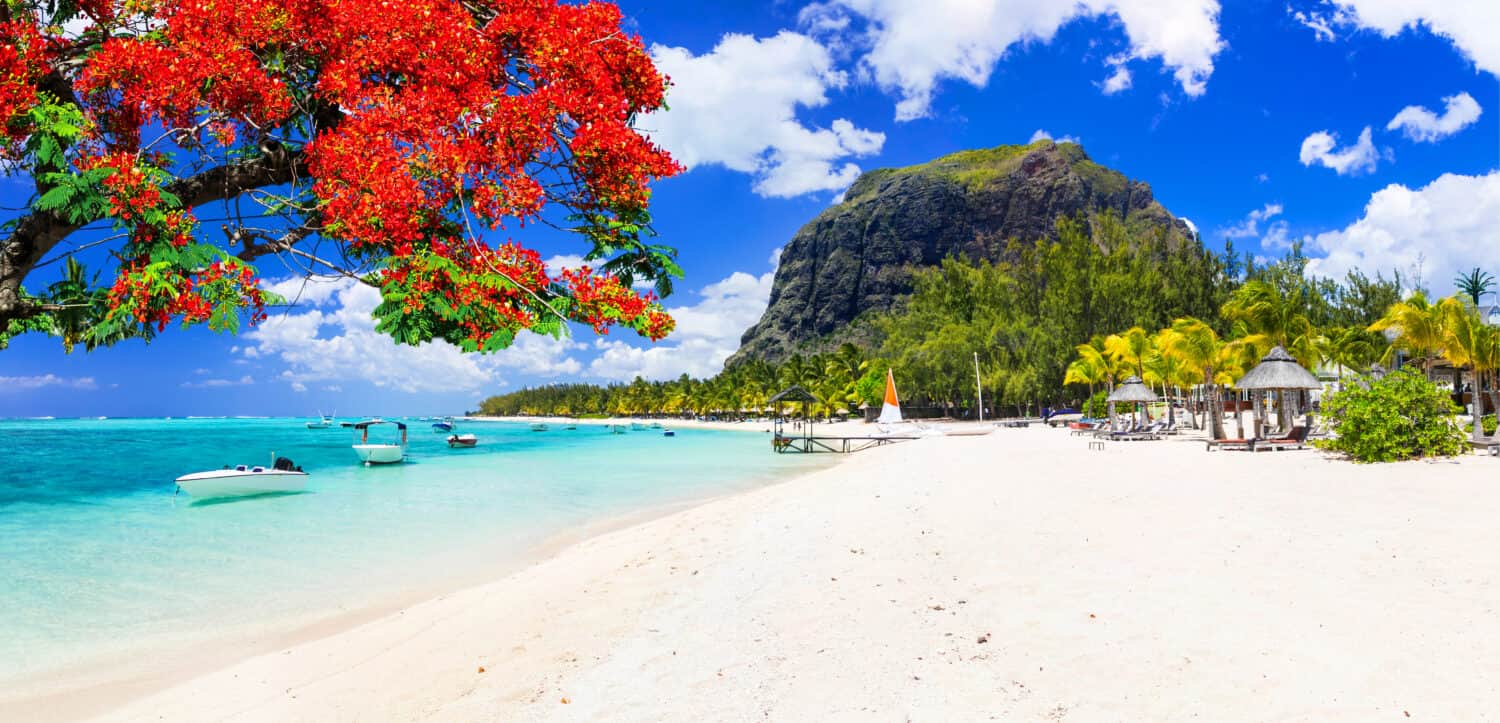
©leoks/Shutterstock.com
Mauritius, another Indian Ocean gem, secures the second position for its efficient healthcare system and a culture that promotes well-being. Universal healthcare coverage ensures access to medical services for all. Furthermore, the nation’s diverse cuisine, influenced by various cultures including African, Chinese, European, and Indian, supports a balanced diet that benefits citizens’ health.
Mauritius boasts a comprehensive healthcare system with public and private facilities. Preventive care and health education programs are paramount, contributing to a high life expectancy (approximately 76 years as of 2023). The government invests in medical research and innovation to continually improve healthcare services and ensure the health of its population.
3. Tunisia
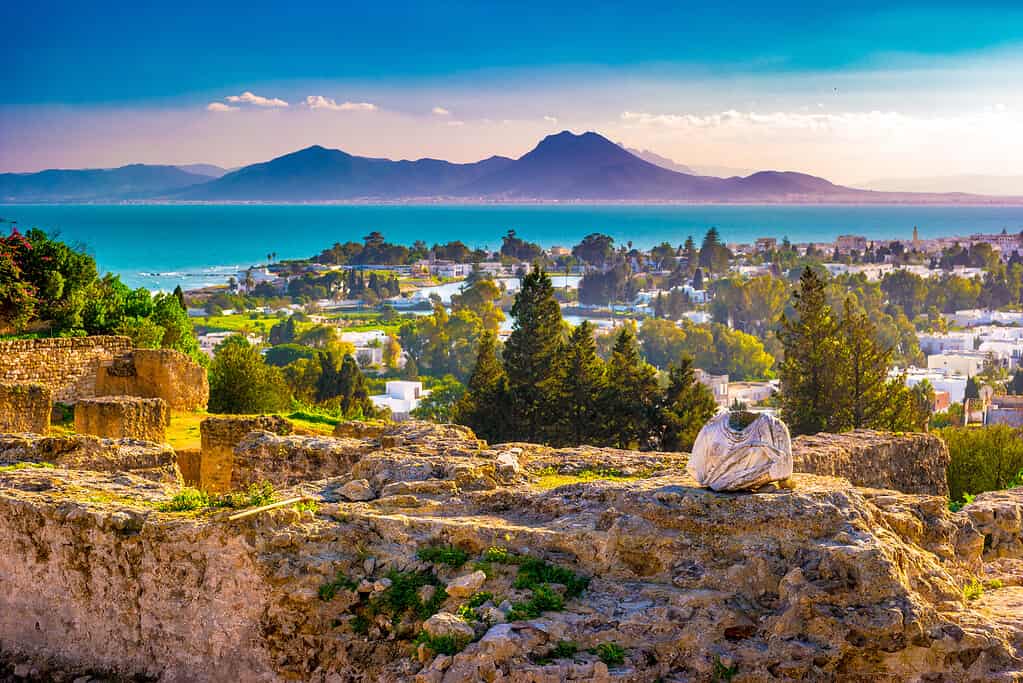
©CJ_Romas/iStock via Getty Images
Tunisia, situated on North Africa’s Mediterranean coast, is a nation that excels in healthcare access and efficiency. The country boasts a universal healthcare system, ensuring that medical services are readily available to all citizens. This commitment to accessible healthcare contributes to Tunisia’s high life expectancy (about 77 years) and overall well-being.
Tunisia’s healthcare system comprises both public and private healthcare providers, ensuring comprehensive coverage. The government has made significant investments in healthcare infrastructure, technology, and medical training. This focus on innovation and quality healthcare has positioned Tunisia as a hub for medical research and innovation in the region.
Tunisia’s emphasis on health is complemented by its vibrant Mediterranean cuisine, featuring a variety of grains, vegetables, and aromatic spices. The nation‘s mild climate encourages outdoor activities, and Tunisians often engage in physical fitness routines, such as jogging along the coastline or participating in water sports. The combination of accessible medical services, health education, and a balanced lifestyle contributes to Tunisia’s status as one of the healthiest countries in Africa.
4. Morocco
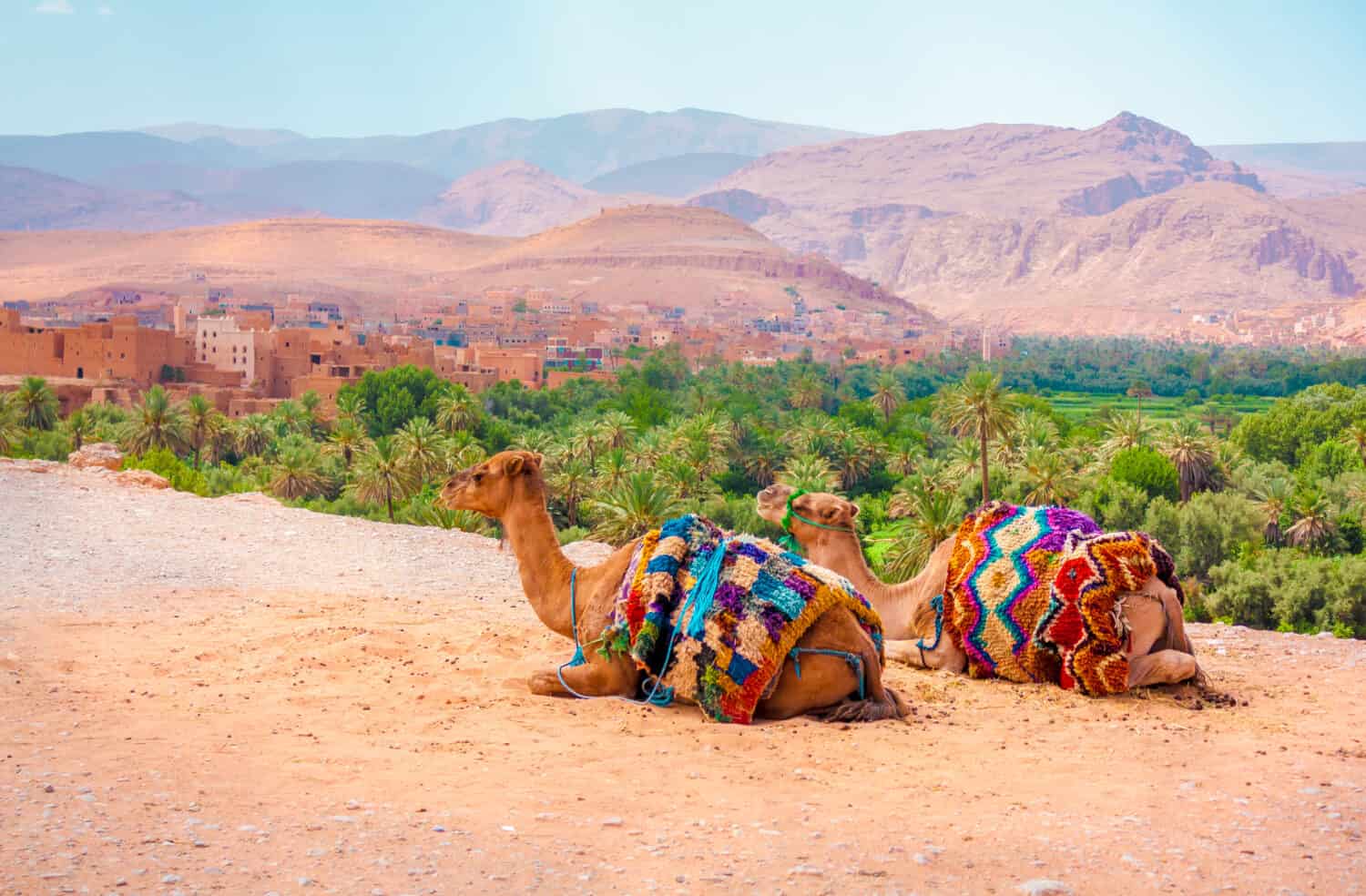
©LucVi/Shutterstock.com
Next up is Morocco, a country celebrated for its rich cultural heritage. The Moroccan government has implemented several long-term strategies aimed at enhancing the existing healthcare system. These strategies involve the establishment of new hospitals, expanding the capacity for training doctors and nurses, and fostering opportunities for private sector investment in the healthcare industry. Furthermore, an emphasis on early diagnosis and preventive measures ensures the well-being of the population.
Regarding lifestyle, Moroccan cuisine is renowned for its fresh ingredients and flavors. Mostly a blend of Berber, Andalusi, Mediterranean, and Arab cuisines, the food in Morocco provides a healthy diet. Moreover, the country’s diverse landscapes offer opportunities for various outdoor activities, like hiking, biking, and camel trekking.
5. Namibia
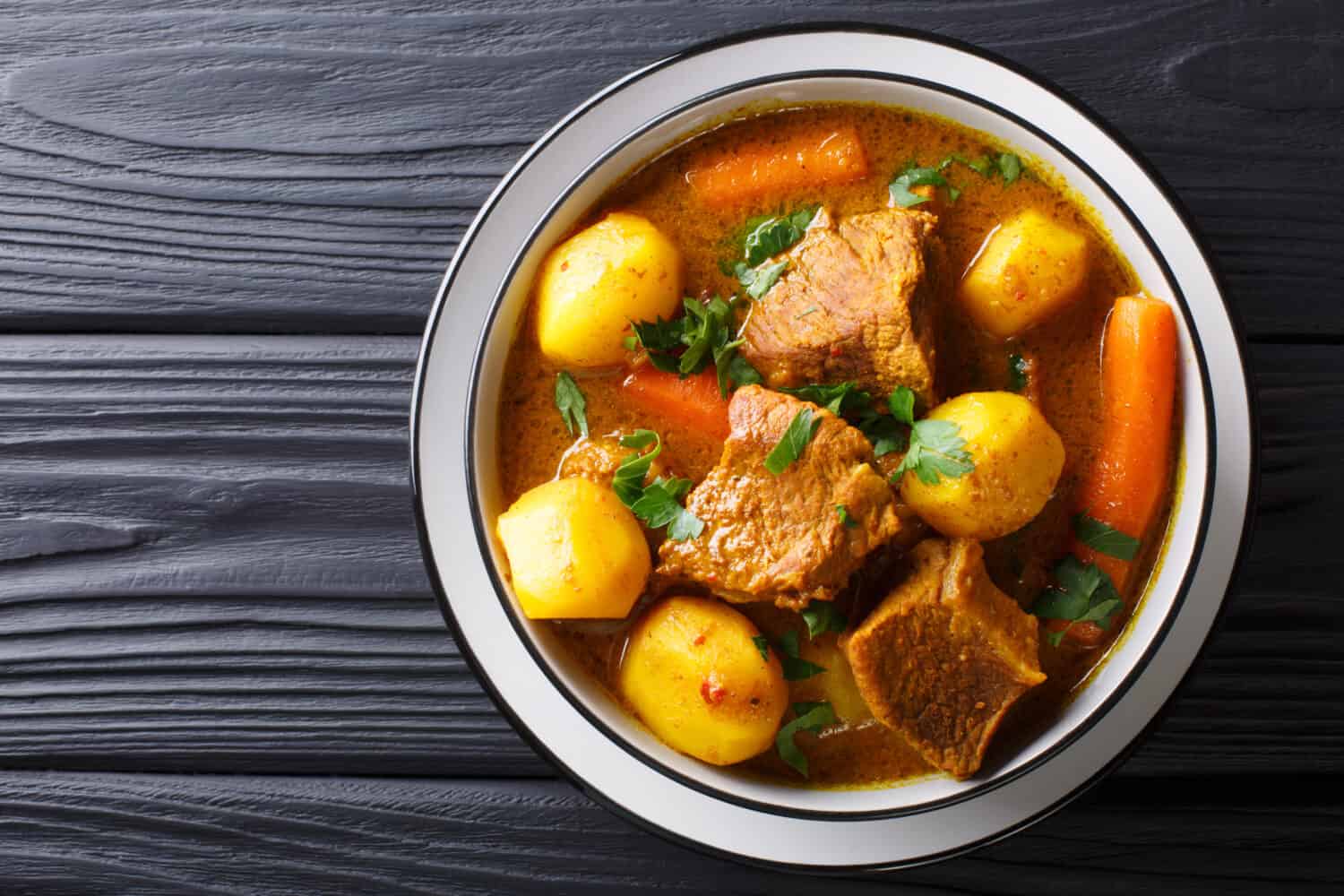
©AS Foodstudio/Shutterstock.com
Namibia, known for its stunning landscapes and wildlife, ranks fifth. The nation’s healthcare system prioritizes accessibility and efficiency. The cuisine, featuring game meats and indigenous plants, provides essential nutrients. Namibia’s outdoor-oriented lifestyle promotes physical fitness and mental well-being.
Considered an upper-middle-income country, Namibia has a healthcare system that includes public and private providers, ensuring widespread access to medical services. The government invests in healthcare infrastructure, particularly in remote areas. Disease prevention campaigns and health education contribute to a healthier population.
6. South Africa
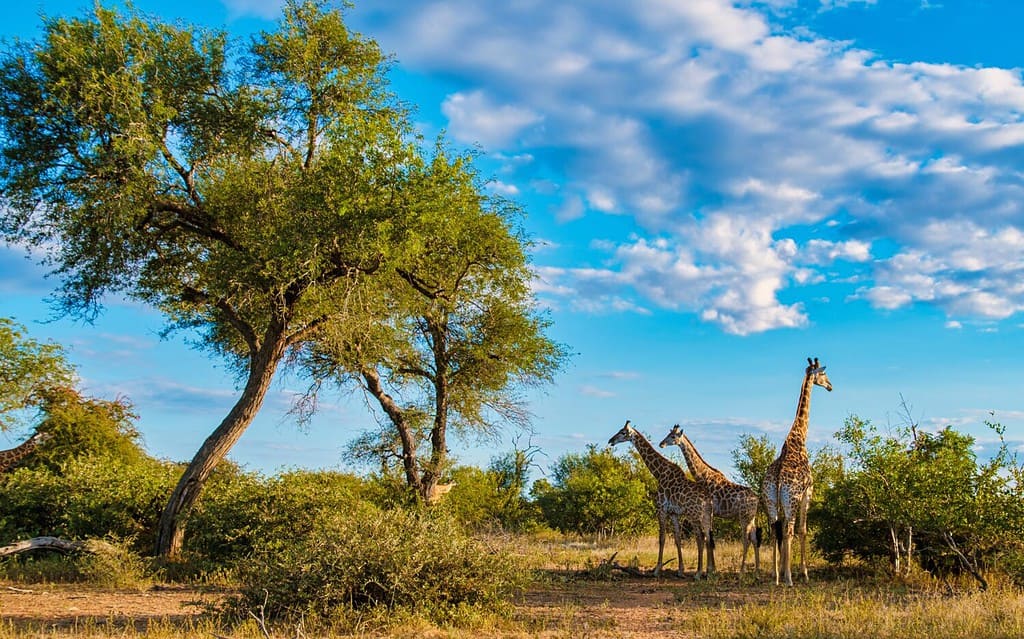
©fokke baarssen/Shutterstock.com
South Africa, a nation of remarkable diversity and natural beauty, secures the sixth position. The country’s healthcare system is known for its research and innovation. Accessible medical services and a richly diverse cuisine contribute to the well-being of South Africans. Residents enjoy various outdoor activities in the nation’s diverse landscapes, including shark cage diving and safaris.
South Africa‘s healthcare system includes public and private facilities. The government invests in medical research and training, making it a hub for healthcare innovation. Health promotion and disease prevention are key components of South Africa’s healthcare strategy.
7. Algeria
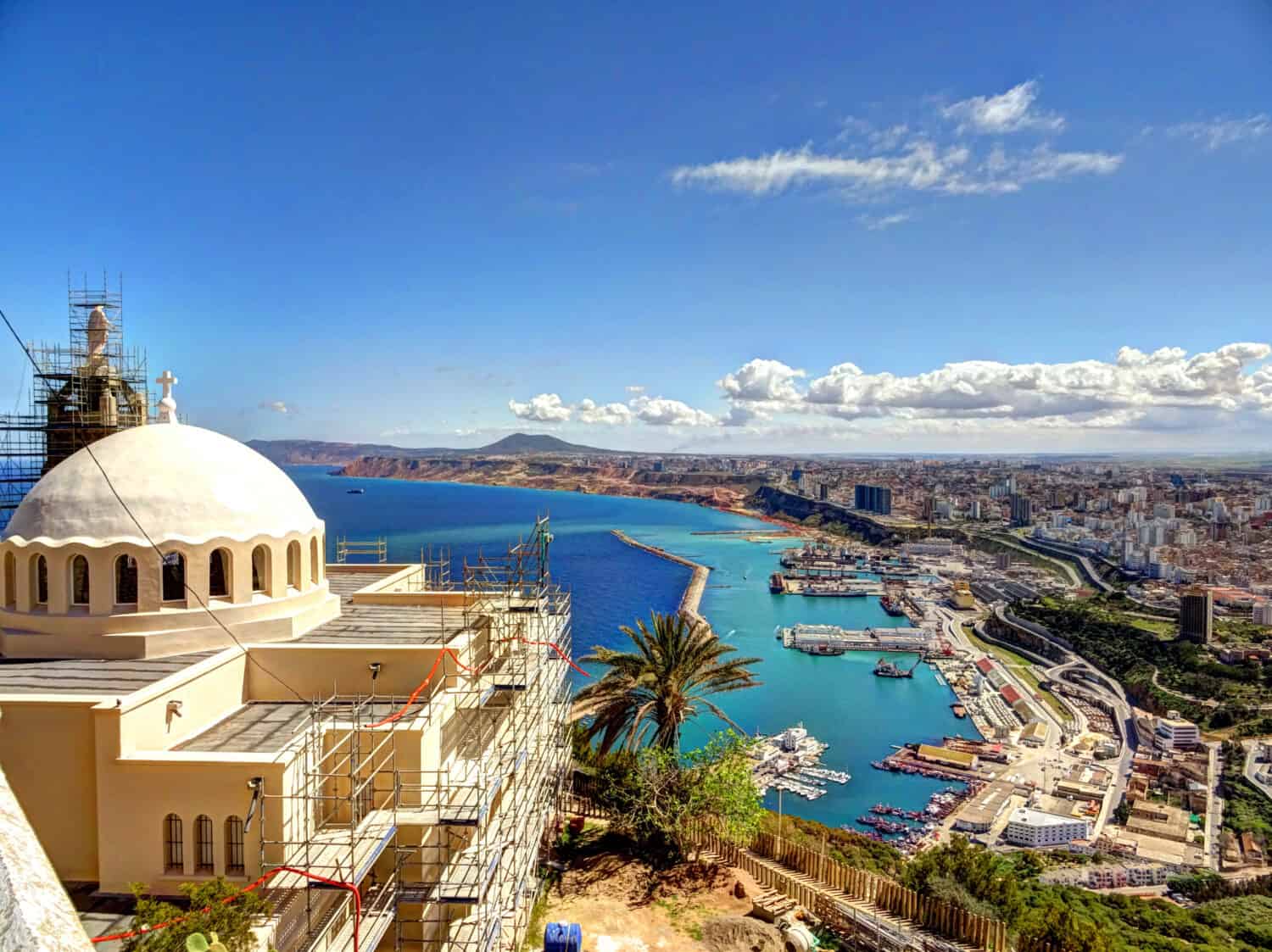
©mehdi33300/Shutterstock.com
Algeria, home to more than 44 million people, emphasizes healthcare access and efficiency. Universal healthcare guarantees medical services for citizens. Algeria’s healthcare system has improved over the years, and it combines public and private providers, ensuring comprehensive coverage. The Algerian Government passed a Health Act in 2018 that is a promising boost to the country’s public healthcare system. Preventive care, health education, and vaccination programs play a pivotal role in maintaining a healthy population.
Furthermore, Algerian cuisine, known for its hearty stews and fresh vegetables, contributes to a balanced diet. Moreover, Algeria’s diverse geography offers ample opportunities for outdoor activities, including mountain climbing and trekking in the desert.
8. Egypt
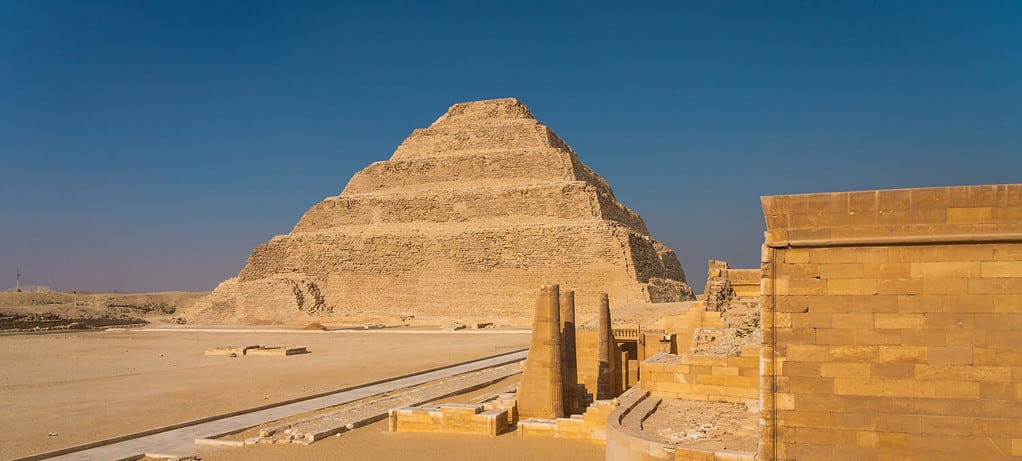
©Punnawit Suwattananun/Shutterstock.com
Egypt, a historic treasure trove, secures the eighth spot. With over 100 million people, Egypt is the second most populous country in the Middle East and North Africa. The nation boasts a well-established healthcare system with accessible medical services. Egypt’s healthcare system includes public and private sectors, with a focus on accessible services. The healthcare system is gradually shifting towards privatization, with government backing to promote and expand private sector involvement. Health awareness campaigns and disease prevention measures are integral to Egypt’s healthcare strategy.
When it comes to healthy living, Egyptian cuisine, centered on grains, legumes, and fresh produce, is ideal for a nutritious diet. Furthermore, Egyptians have the opportunity for various activities, from exploring historical sites to recreational sports.
9. Ghana
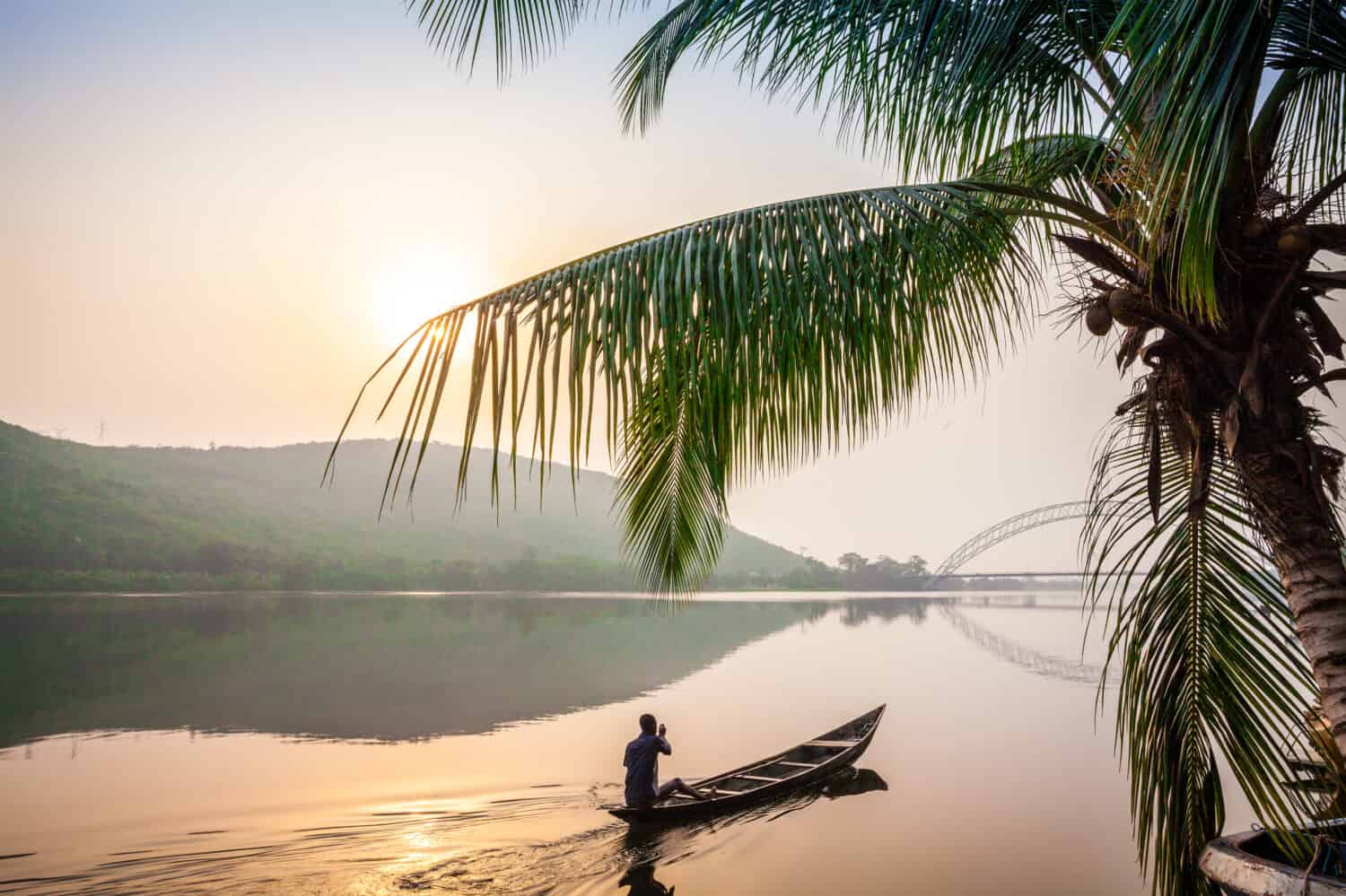
©Sopotnicki/Shutterstock.com
Ghana, situated on West Africa’s Gulf of Guinea, ranks ninth. The nation offers accessible healthcare services and emphasizes preventive care. Ghanaian cuisine, featuring staples like cassava, yams, and plantains, provides essential nutrients. Ghana’s coastal plains and lush forests encourage outdoor activities, promoting physical fitness.
Ghana’s healthcare system ensures widespread access to medical services, with both public and private providers. As of 2021, 68.6% of the population was covered by either the National Health Insurance Scheme or by private health insurance programs. The government invests in healthcare infrastructure and education, particularly in rural areas. Health promotion and disease prevention initiatives (especially against prevalent local diseases, such as malaria) are central to Ghana’s healthcare approach.
10. Kenya
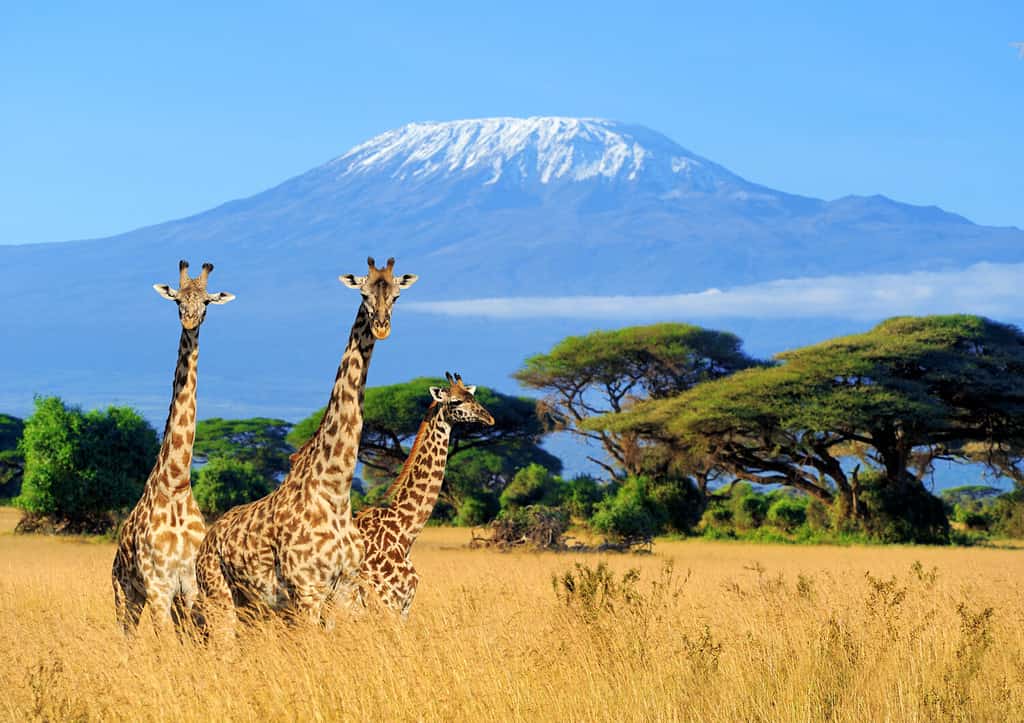
©Volodymyr Burdiak/Shutterstock.com
Lastly, Kenya, known for its natural beauty and vibrant culture, rounds out our list as the tenth healthiest African nation. The Bloomberg Global Health Index acknowledges Kenya’s efforts to enhance healthcare access and efficiency. Furthermore, the country’s diverse landscapes provide opportunities for outdoor adventures, contributing to physical fitness and mental well-being. The nutritious Kenyan diet, including maize and vegetables, supports overall health.
Kenya’s healthcare system is a mix of public and private providers, ensuring comprehensive coverage. The government invests in healthcare infrastructure, research, and medical training. Preventive care, immunization programs, and health education are integral components of Kenya’s healthcare approach.
Conclusion
These top 10 healthiest African countries exemplify the importance of accessible healthcare, preventive care, and a health-conscious lifestyle. Each nation’s approach to health and well-being provides valuable lessons on fostering health in our own lives and communities.
| Rank | Country |
| #1 | Seychelles |
| #2 | Mauritius |
| #3 | Tunisia |
| #4 | Morocco |
| #5 | Namibia |
| #6 | South Africa |
| #7 | Algeria |
| #8 | Egypt |
| #9 | Ghana |
| #10 | Kenya |

